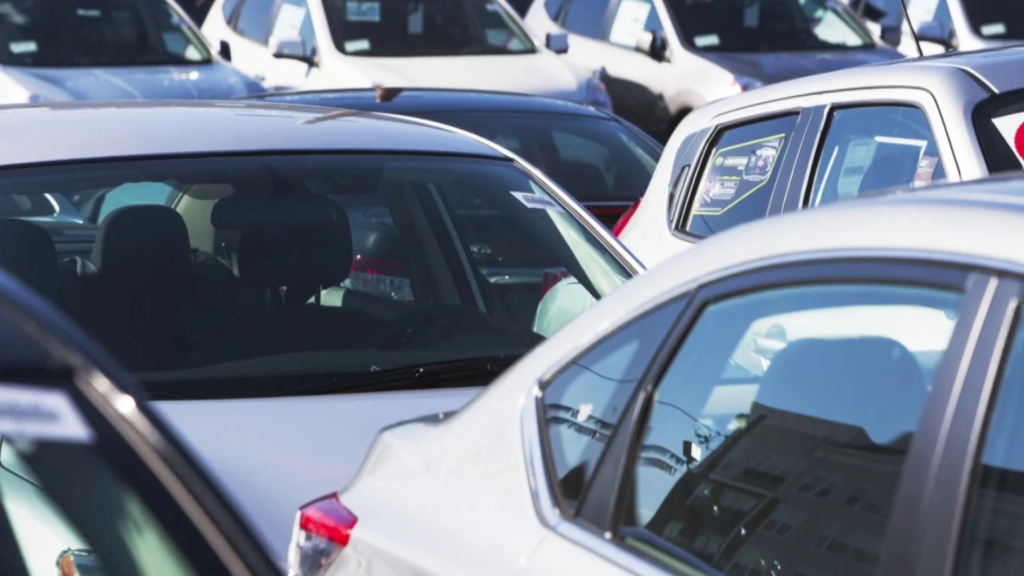If you’re considering the purchase of an automobile, you’re likely focusing on the initial price tag and the monthly installments. However, the true cost of owning a car encompasses far more than these apparent expenses. In this comprehensive guide, we’ll delve into the intricacies of calculating the complete cost of car ownership, provide strategies to minimize these costs, and offer insightful tips to help you make informed decisions.
Calculating the Total Cost of Owning a Car

For a clear understanding of the financial commitment involved in owning a car, employing a car cost calculator can be immensely helpful. By tallying your regular automotive expenditures, such as fuel and insurance, you can gain insight into your anticipated monthly outlay. This can be a manual process or facilitated by utilizing one of the numerous free online calculators available.
In instances where you’re new to car ownership and uncertain about future costs like fuel and maintenance, you can rely on these average values as starting benchmarks:
- Average new-car monthly payment: $648
- Average used-car monthly payment: $503
- Average monthly insurance premium: $112
- Monthly gas cost for 15,000 miles per year: $270
- Maintenance and repair: $119
- Monthly registration, fees, taxes, and miscellaneous: $12
- Total car cost: $1,664
Please note that the car cost calculator referenced above draws from data provided by Experian, AAA, GasBuddy, and the National Conference of State Legislatures.
READ MORE:
- Unveiling the Captivating Journey of Carlos Ghosn: A Deep Dive into His Impactful Life
- GMC Hummer EV SUT Turns into a Mobile Home with EarthCruiser Upfit
Inclusive Expenses in Car Ownership Costs

While the average monthly payment for a new car was around $648 in Q1 of 2022 according to Experian, it’s important to recognize that this figure represents just a fraction of the entire cost of owning a vehicle. Several other critical costs should also be factored in, including:
Fuel Costs
Your vehicle’s fuel efficiency rating plays a pivotal role in determining your gas expenditure. Higher ratings correspond to lower fuel expenses. Despite the daily fluctuations in gas prices, estimating this expense is feasible. Over the past year, the national average price per gallon of gas stood at $3.189.
To calculate your monthly gas expense, divide your monthly mileage by your vehicle’s fuel economy rating and then multiply this value by the cost of a gallon of fuel in your area.
Car Insurance
Car insurance represents a substantial portion of car ownership costs. Premiums are tailored to individual circumstances, considering factors such as:
- Age: Generally, younger individuals, including teenagers and those in their twenties, pay higher insurance premiums, which tend to decrease with age.
- Credit Rating: Poor credit often results in higher premiums compared to those with good credit.
- Driving Record: Drivers with recent at-fault accidents, speeding tickets, and traffic violations experience elevated rates.
- Gender: Historical data reveals that men typically face higher insurance costs due to their higher likelihood of accidents.
- Location: Your geographical location significantly influences your premium.
Given the variability of car insurance rates, it’s advisable to request quotes from multiple insurers to secure the best rate.
Repairs and Maintenance
The frequency of your vehicle’s use is interconnected with its repair and maintenance costs. Regular maintenance, including oil changes, tire rotations, and brake replacements, is essential to uphold your car’s performance. In addition to parts, labor costs contribute to maintenance expenses. On average, new vehicle owners can anticipate spending approximately $119.38 on repairs and maintenance annually.
Registration, Taxes, and Miscellaneous Costs
Vehicle registration is mandatory for legal driving. Registration fees vary by location and can be fixed or variable based on your car’s age and fuel efficiency. Similarly, taxes are relevant in certain states, where costs correspond to your car’s value. Additionally, consider parking expenses, which differ across cities and states.
Strategies to Reduce Car Ownership Costs

Automotive expenses can consume a significant portion of your monthly budget. To mitigate these costs, consider implementing the following strategies:
Refinancing Your Car Loan
Refinancing can lead to lower interest rates or an extended loan term, resulting in reduced monthly payments. This is particularly beneficial if your credit score has improved since your initial car purchase.
Regular Maintenance Scheduling
Prioritize routine car maintenance, adhering to your owner’s manual recommendations. Timely oil changes and fluid replacements can prevent major issues down the line.
Reviewing Your Car Insurance Policy
Periodically review your car insurance policy to assess its relevance and cost-effectiveness. Obtaining new insurance quotes annually and post-claim can help secure favorable rates.
Transitioning to an Electric Vehicle (EV)
Besides environmental benefits, electric and hybrid vehicles can substantially decrease car ownership expenses. Lower fuel and maintenance costs make EVs an attractive alternative.
Opt for a Smaller Engine
A vehicle’s engine size directly influences fuel costs. Opting for a smaller engine can significantly reduce your gas expenses, especially if heavy hauling isn’t a regular requirement.
Consider a Smaller Vehicle
Smaller cars are more fuel-efficient. Opting for a compact sedan over a larger SUV can lead to substantial savings in fuel costs.
RELATED POST:
- VinFast VF9 Earns 330-Mile EPA-Estimated Range, Deliveries Start This Year
- Get the Scoop on Car Insurance in Syracuse, New York
Navigating Car Financing
When financing a car, understanding your options is vital. The following auto loan types are commonly offered by lenders:
- New Car Loans: Designed for purchasing a new car, they usually come with extended payment plans and varying interest rates.
- Used or Pre-Owned Loans: Intended for older model vehicles, they might have mileage and age restrictions.
- Auto Refinancing Loans: These allow for better loan terms by refinancing your existing auto loan.
- Auto Loans for Bad Credit: Suitable for individuals with poor or no credit history, albeit with higher interest rates.
- Cash-Out Auto Refinance Loans: Permit borrowing against your car’s equity, providing additional funds.
- Lease Buyout Loans: Used to buy your leased vehicle at the end of the lease period.
Understanding Depreciation and Reliability
Car depreciation is a reality to reckon with. New cars begin to depreciate immediately after purchase, with a typical 20% drop within the first year and a 60% decrease after five years. Opting for used cars is cost-effective due to decreased depreciation.
Consider reliability when choosing between new and used vehicles. Some used models are equally reliable, if not more so, than their new counterparts, especially considering potential issues with new technology.

Answering Frequently Asked Questions
How Can Car Ownership Expenses be Reduced?
Car ownership expenses vary based on individual circumstances. Strategies include opting for hybrid or electric vehicles, seeking insurance discounts, refinancing loans, and prioritizing maintenance.
Why is Car Ownership More Expensive Today?
Rising prices across the board, driven by factors such as the COVID-19 pandemic, contribute to the increased expense of car ownership. Fluctuating gas prices and preferences for larger vehicles also play a role.
Are Used Cars More Expensive to Maintain?
Contrary to common belief, used cars can be equally or more reliable than new cars. New cars may have ongoing problems, and recalls are not uncommon in initial production years.
How Can I Lower my Insurance Premiums?
Lowering insurance premiums involves utilizing available discounts, adjusting coverage limits, raising deductibles, improving credit scores, and paying annual premiums upfront.
Is Buying a Car Worth It?
Whether buying a car is worth it depends on individual needs and budget. Understanding the full scope of ownership costs is key to making an informed decision.
Source: https://www.caranddriver.com/auto-loans/a41545320/average-cost-of-owning-a-car/
